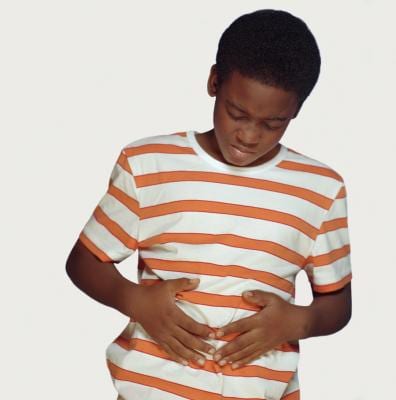Stomach viruses are an inflammation of the lining of the stomach. The lining of the small and large intestine can be affected as well. Often simply called “the stomach flu,” the medical term for the illness is gastroenteritis. When gastroenteritis is caused by a virus, it is called viral gastroenteritis. In most cases, a stomach virus is not serious and can be treated successfully at home.
Causes
Four primary viruses cause most cases of viral gastroenteritis. They are the astrovirus, the enteric adenovirus, the norovirus and the rotavirus. The most common among school-age kids is the norovirus. Rotavirus is the most serious stomach virus and can be life-threatening for infants and toddlers. For that reason, most babies are vaccinated against rotavirus.
Symptoms
Children with a stomach virus usually complain of stomach pain and nausea. They may vomit and suffer from diarrhea, and develop a headache, fever and accompanying chills. Infants may refuse to nurse or spit up what they do eat. The symptoms appear on average about two days after the infection takes hold and may last for up to 10 days.
Prevention
Stomach viruses are spread through contaminated food and water, and also through contact with people who are already infected. Keep children away from people who have a stomach virus, and make sure children wash their hands frequently, especially before and after eating.
Treatment
Antibiotics cannot cure a stomach virus. The illness just has to run its course. Still, treatment can help a child feel better, and more importantly, prevent her from becoming dehydrated. This is especially important in young children, babies infected with rotavirus, and the elderly. These groups often cannot take in enough liquids and keep them down when they have a stomach virus. Give your child plenty of fluids, including broths and electrolyte solutions (but not sports drinks). Infants should nurse on demand, if they are breastfeeding. Avoid drinks that have a great deal of sugar, as this can worsen diarrhea. Ibuprofen and acetaminophen will reduce a fever and ease aches and pains, but never give a child aspirin, as this can trigger Reye’s syndrome, a rare but dangerous disease.
Warning
Seek immediate medical attention if your child continually vomits and cannot keep liquids down. In infants, it’s important to watch for wet diapers to make sure the baby is not suffering from dehydration. If your baby has a dry diaper for more than six hours, call a doctor. Dizziness, a dry mouth and lethargy are also signs of dehydration that necessitate a trip to the doctor’s office. In addition, see a doctor as soon as possible if your child has blood in his stools or a fever of 102 degrees F.





